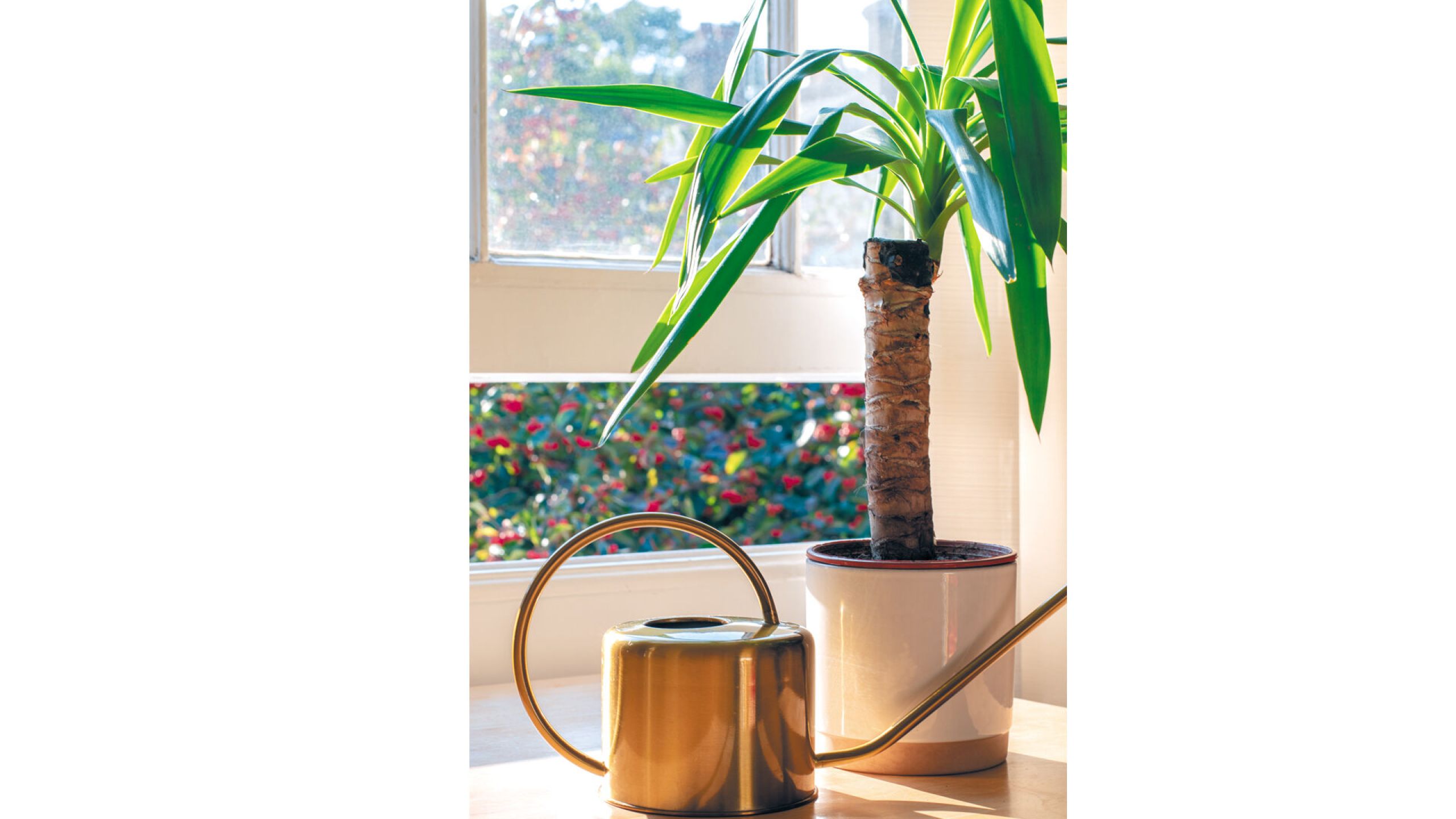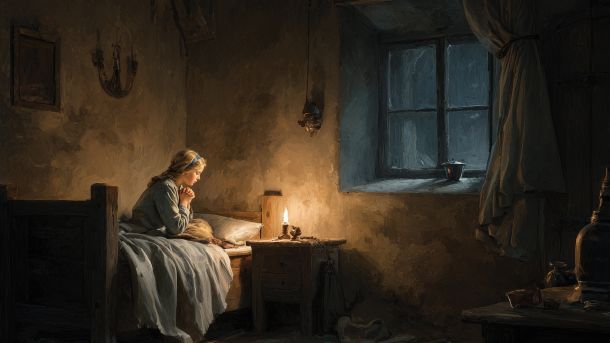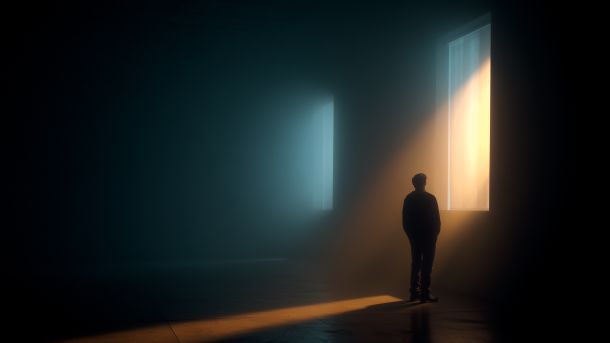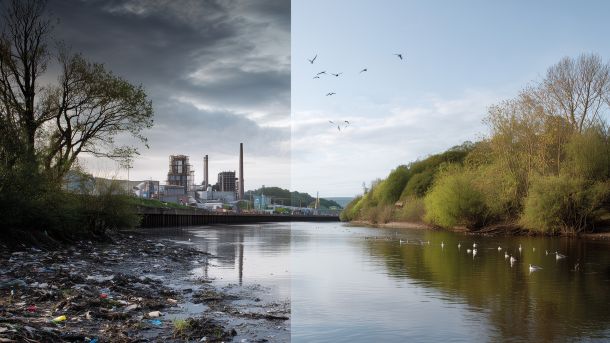Fruit Flies

In This Article
-
My father, the first person who told me that the simplest way to learn about the cycles of life and death was to observe it all around me in nature, was finally nearing the end of his own path.
-
Nature, albeit a fraction of it that I accidentally cultivated in my own kitchen, was about to teach me about ephemerality, grief, and death.
-
The spider-dangling child who had merrily let all things live was buried in her grief, and I called the pest company the day the infestation began.
The large windows in the kitchen of my new home let in the perfect amount of sun for plant-rearing. So, after some meandering in the garden section of a big-chain hardware store, I bought a yucca and placed it next to one of the kitchen's bay windows. After a few days I added a lily on the windowsill next to it and the two were fast friends, both leaning toward the glass to catch the brunt of the light when the kitchen was at its brightest. Soon I found myself preoccupied with watering them and watching them flourish, even as I accepted that I did so to distract myself from the news cycle at the time, which mainly featured a few benign fluff stories, the weather, and the national and worldwide death toll from the pandemic. In this way, the plants served their unwitting purpose. Then, the watering schedule I'd set for them shifted from a pleasant distraction to a full-blown mania that resulted in overwatering.
That, coupled with the right cocktail of gnat eggs and direct sunlight soon transformed the top layer of the yucca's soil into a hatching pod. My kitchen, so bright with its area of exposed brick painted white and its backsplash above the stove, was now besieged with fruit fly larvae. Then, just as the last lily buds on the yucca’s neighbor began to open despite the chaos around them, my older brother called to tell me that our father's cancer had spread to his bones. My father, the first person who told me that the simplest way to learn about the cycles of life and death was to observe it all around me in nature, was finally nearing the end of his own path. Moreover, daddy was right; nature, albeit a fraction of it that I accidentally cultivated in my own kitchen, was about to teach me about ephemerality, grief, and death.
My brother adjusted his tone as he explained to me what was happening to my father, and I recognized the shift in his inflection as one he often used for his youngest, most inquisitive daughter. As gently as he could, he told me that there would be no more chemo. After the call, I spent the next few days slowly processing the words “spread to his bones.” During that time, I also waged war on more invertebrate sunbathers, which were now no larger than grains of rice, enjoying the warmth of my kitchen floor. I thought of my father all the while, and the rule of threes that the eldest womenfolk in my family had always told me about when I was little. The crux of their superstition stated that many important things in life came in threes: death, calamities, successes--all in threes. I had always hated that bit of family-fueled lore and the way that each generation of women on my mother’s side kept reviving it, imbuing it with new strength by grouping all the joys and hardships of our family into neat triad bundles, but I also had to admit to myself in this instance that my father’s war was tiered that way too, with three battles rolled into one. First came his early scrimmages with addiction. Then, with his mental illness. Finally, prostate cancer entered the arena as an armor-clad champion, and how he fared throughout that battle was inextricably tied to the resolve he’d earned battling the other two.
I’m sure I could have viewed the infestation differently if I hadn’t lain eyes on the larvae while I was mourning the impending loss of my father. I had always been that type of child growing up, grasping insects by their wispy legs to move them from harm’s way, and crouching to observe brightly colored caterpillars. It also helped that the nature shows I watched back then often described writhing, translucent piles of larvae with terms like "burgeoning new life" and "resilient young." But, in the midst of losing my father, I was too jumbled inside to think that way. The spider-dangling child who had merrily let all things live was buried in her grief, and I called the pest company the day the infestation began. My hopes were dashed during that call though, as I was cautioned against having high hopes about eradicating them in one treatment. Even the service representative’s words were triggering for me as my mind again clamped onto certain words as she spoke and a memory tunneled me back to where I had heard similar, like “impossible to eradicate with one treatment." Bitterly, I remembered exactly where I’d heard them; it was during one of daddy's first diagnostic visits. But I did perk up slightly when the rep told me that the larvae hated the cold and resolved right then to freeze them out.
My family rendezvoused at the hospice center in Bethesda to see my father and took turns going in to visit because of the facility's Covid-19 restrictions. When I entered his room and saw how small he'd become, I decided to record our conversation. Because he was also aware of how, little by little, parts of him were dissipating (evaporating? I hate the term “wasting away”), he spoke to me as if he also knew it would be our last. I held onto each word he told me in his strained voice, which he pushed out between breaths that caused his swollen brown belly to bow upward and his too-visible ribcage to rise and fall dramatically, though some of it I wasn't prepared to hear. He imparted bits of wisdom about my failed marriage, the ebb and flow of my iman—the word he used for my faith as a Muslim—and chiding me about my undone tasks and how I had less time to do them than I thought. I felt pangs of guilt when he was done and felt even worse when I returned to my icy home alone with a deeper hatred of the larvae than before. If my daddy wouldn't be allowed to thrive, why should they? Invertebrate scum. They had no bones for cancer to spread to, causing pain excruciating enough to push a recovering addict's mind to thoughts of needles and vials. They possessed no fingers to play the saxophone, or callused hands to pat the hijab-covered heads of their daughters. None had vocal cords to recite the long, rhythmic Sufi prayers that my daddy knew by heart. In fact, they had no hearts at all. They simply existed to multiply and consume, like cancer.
After the visit, my mom and siblings flooded our family group chat with updates from his doctor, but the constant pinging sounds became unnerving, so I silenced my phone entirely. I knew that a portion of them were concerned texts from my mother, who was concerned with my extermination method and wondering how I was faring in the cold. I also knew that there was a simpler way to mute their texts, but I wanted to do more than that. I wanted to mute everything around me—the omnipresent whir of my air conditioner, sporadic clatter from the icemaker in my fridge, and the moan of the wooden floorboards under the large feet I inherited from my now-fading father. It took three days to freeze all of them, and each night was spent bundled against the cold, phone in hand as I replayed clips of my father playing his saxophone or smiling proudly with his arm slung around the shoulders of one of his many grandchildren. When morning broke after each chilly night prior, I’d rise and sweep the frozen ones into my dustpan. Once lively and determined in their trek across my linoleum, the cold had since left them discolored and shrunken. By the fourth day their short lives were done, and father’s life was too, leaving me with a clear kitchen, but clouded mind. I turned up the heat and let the warmth return to my kitchen, which I paced as I contemplated the life of both the prospective fruit flies, and my father’s. Standing in the fully restored kitchen on the morning of his janaza, or funeral, with its floor tiles warm against my feet, I decided that what nature taught me about fruit flies and my father was that they were both fragile creatures who had, however briefly, enjoyed their time in the sun. I also decided that surviving my grief and allowing myself some joy again meant reviving the wisdom of my foregone womenfolk and looking at my father’s life in a different light. His battles came in threes, but his blessings did too: bones that bore the weight of his seventy years, callused hands that patted the heads and wiped the tears of his six children, and the skilled fingers that told stories through his horn so vividly that sometimes, I still hear them in my dreams.









